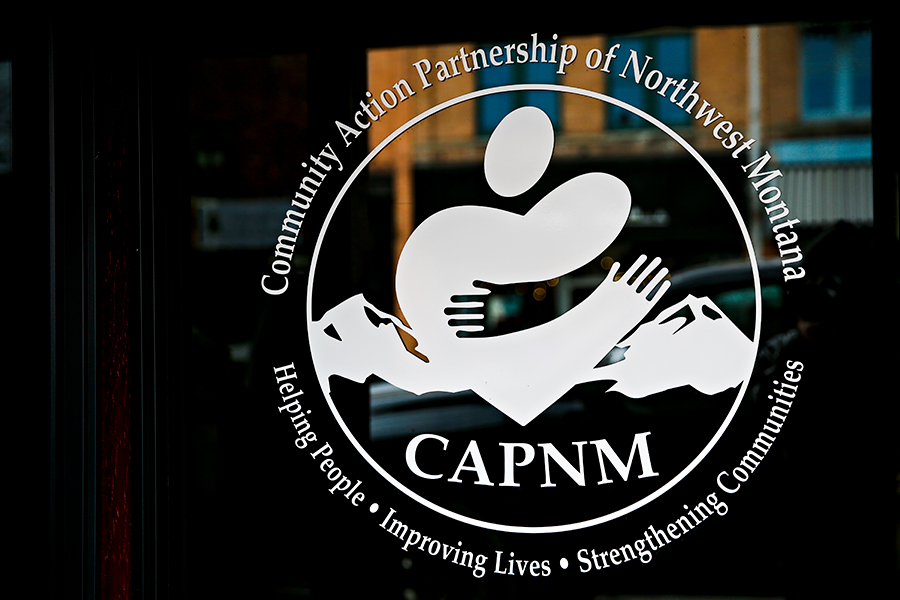Nonprofits Work to Build Partnership with Kalispell to Find Housing Solutions
Leaders from CAPNM presented their challenges to the city council at an Oct. 10 work session with hopes to build a better rapport with officials to produce more low-income housing
By Maggie Dresser
At an Oct. 10 Kalispell City Council work session, local nonprofit leaders and city officials brainstormed ways to combat the affordable housing crisis while pledging to work together after some nonprofit directors described their interactions with the city as “contentious.”
Community Action Partnership of Northwest Montana (CAPNM) Deputy Director Cassidy Kipp, whose mission is to connect individuals to housing and other social services, shared the challenges the nonprofit is encountering at a presentation to the council.
“We are seeing people who have been displaced from their current rentals because the rental has been sold or because rent has increased at such a rapid rate that they can’t keep up with it,” Kipp said. “We’re seeing a lot of folks that are being displaced who may be experiencing homelessness or housing instability for the first time because there’s not that next place for them to go to.”
According to Kipp, the median residential sale price has spiked 243% and the market rate rent has increased 84% in Flathead County between 2015 and 2022.
The city council hosted the meeting after employees at CAPNM previously proposed a work session dedicated to conversations surrounding housing solutions.
Solutions like tax credits, deed restrictions and utilizing state and federal housing programs were suggested at the meeting. However, officials said there was little the city could do at the local level as the U.S. Department of Housing and Urban Development (HUD) is responsible for subsidy programs.
“When it comes to looking at how do we hit the affordable housing – it’s a federal issue,” Mayor Mark Johnson said. “It’s a federal program and there are only so many out there. It’s a very competitive system … we’re doing what we can at the local level.”
Instead, city officials pointed to the thousands of units the council has approved in the last several years to bring in more inventory and zone changes the city has supported to accommodate multifamily housing.
“Since 2018 I think we’ve approved 5,000 units,” Councilor Chad Graham said. “They are not all built yet, that’s the problem. Time is our biggest enemy.”
CAPNM Executive Director Tracy Diaz and Kipp said that while they were grateful for the added inventory, the additional units would not be suitable for their clients, who cannot afford the current market rate.
Even among their clients who have secured Section 8 HUD vouchers, Kipp says there are no units that qualify for the subsidy, meaning the vouchers often go unused.
“Section 8 is a go-to solution for a lot of folks to be able to get monthly assistance while they are renting a unit,” Kipp said. “Those numbers are decreasing every year. They’re decreasing because they can’t find the units.”
Additionally, nonprofit directors told the council that the city has been unresponsive to their inquiries and needs.
“I have not felt real welcome with the city … we’ve been indirectly threatened, we’ve been indirectly accused of lying – it’s been an uncomfortable situation,” Diaz said. “We feel we come, we give our opinions, and it’s not heard.”
City Manager Doug Russell objected to the statements and said they “have no problem working with anyone.”
“I’ve been part of these conversations and we have staff working with everyone that comes through our door that never turn anyone away, so I just have to publicly object to those statements,” Russell said.
Flathead Food Bank Executive Director Jamie Quinn said she hoped the city and nonprofit partners could work together and repair a broken relationship.
“I run the food bank and I’m a CAPNM board member and lets just be honest, it’s been contentious between CAPNM and the city,” Quinn said. “If we don’t figure this out, we’re not going to get anywhere … I don’t think that it’s been a very cohesive relationship and I think there are ways that we can build and grow, and I think that’s important. Whatever the relationship is, it doesn’t matter because we are not providing housing to those that are more at risk.”
Nonprofit leaders said they want to continue conversations and Kipp invited a city official to fill an opening on CAPNM’s board of directors in order to form a closer partnership between the two entities.
“We have a lot of overlapping needs with what the city has and I’m going to throw it out there if anyone is interested,” Kipp said.